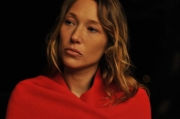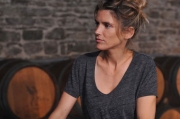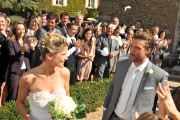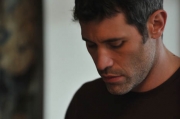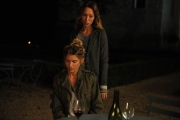Charlie Maréchal, son of a renowned winemaker has left Burgundy and become an esteemed Parisian wine expert. When he learns the family business is going bankrupt, Charlie, although reluctant, is compelled to return to Burgundy. He must prove to his father that he is worthy of the terroir passed down for generations in their family.
Cast & Crew
Director • Jérôme Le Maire
Screenwriters • Rémi Bezançon, Vanessa Portal and Jérôme Le Mai
Director of Photography • David Ungaro
Producer • Alain Terzian
Starring :
Gérard Lanvin, Jalil Lespert, Alice Taglioni, Laura Smet…
Choose a picture to see the filmography (source : IMDB)
![]()
There are several themes that come into play throughout your film, such as the importance of land, family and legacy. Do these themes resonate particularly with you?
While working on the scenario in Burgundy, I quickly realized that the passing down of a legacy was an essential theme for the film. It is a region that has been inhabited and cultivated for centuries, dating back to the Romans and then the monks. The winemakers are more often at the head of small family estates than large corporate establishments. Knowing who is going to take over the vineyard is a real concern for the winemakers of Burgundy, so the idea of “passing down to” appeared as obvious . . .
The way you film the land of Burgundy pays perfect homage to what it represents.
I needed to magnify the vineyard. I wanted to show the land and the way they cultivate it: feet in the mud, hands in the grapes, and faces weathered by the elements . . . So I had this idea of making a more naturalistic film, without overdoing the esthetics.
One of the great casting decisions was to choose Jalil Lespert for the role of Charlie, the son. Not only is he a great comedian, but he also resembles Gérard Lanvin enough to convincingly play the role of his son!
That was the challenge of Premiers crus: finding a pair of actors that work perfectly together as father and son. Jalil’s acting appeals to a wide range of audiences and he can play a large variety of roles. Like Gérard, he is an intense and sound person who can always find the appropriate tone for his characters. The film relies largely on the quality of their interactions, on the intensity and the credibility of the relationship between father and son that they helped me to develop.
The tone of the film is very modern, true and tangible…
I wrote with the intention of finding a simple and fluid tone by avoiding being too wordy, especially considering that the people of Burgundy are rather taciturn. I cut down some of the text while filming, then I cut more during the editing process with my film editor to really stay in line with what I needed the audience to understand, the flesh of the story.
Another important element of Premiers crus is the music. You play with on two registers, with two inspirations . . .
The music was written by Jean-Claude Petit, a composer with a background in poetic and naturalistic films: Jean de Florette, Cyrano de Bergerac… He perfectly understood the emotions of the story and his music paired perfectly with the staging. We added in a few places some more modern influences by Pascal Lafa, a young composer who brings a more contemporary feel.
Press Kit “Premiers crus”
French ~ 27 pages ~ 184 Ko ~ pdf



